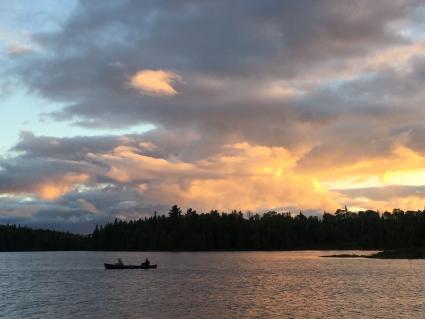Multiple wildfires burning in the WTIP listening area at this time
Windy and warm conditions were expected Aug. 17 as suppression efforts continue on the rapidly spreading Greenwood Fire in Lake County.
To view a current map of the fire, click here.
The fire grew to approximately 2,000 acres by Monday night, according to the U.S. Forest Service. A portion of Highway 1 remains closed near Isabella to help fight the fire and keep people out. The Forest Service says aircraft is being used to limit the fire spread to the north, including two helicopters. Tofte District Ranger Ellen Bogardus-Szymaniak told WTIP Aug. 17 that a massive Australian 737 is also dropping fire retardant on the fire to try to contain its growth.
The Greenwood Fire is one of many burning in the WTIP listening area. Among the new fires are two located in the Boundary Waters Canoe Area Wilderness. The Whelp Fire is about four miles northwest of Sawbill Lake, a popular entry point in the BWCA.
As of Tuesday morning, that fire was about 20 acres and actively burning, according to Bogardus-Szymaniak. A closure for a section of the BWCA will go into effect for areas north of Sawbill Lake in the near future due to this fire, according to the Forest Service.
Also burning in the BWCA is the John Elk Fire near Little Saganaga Lake. Both fires are in remote areas and challenging to reach on foot, so there aren’t currently firefighters on the ground fighting those fires, Bogardus-Szymaniak said.
Across the border, fire activity in Canada was abundant in and near Quetico Provincial Park to start the new week. A smoke column was visible from the end of the Gunflint Trail Monday afternoon from a wildfire burning in Ontario. Many of the fires have pushed to the north, but some are also backing toward the United States border, according to the Forest Service.
During the WTIP interview Tuesday morning, the Tofte district ranger describes record-breaking drought conditions across Superior National Forest and her reaction to recent illegal campfires that led to wildfires in the region. The audio below is the full interview with WTIP’s Joe Friedrichs.














